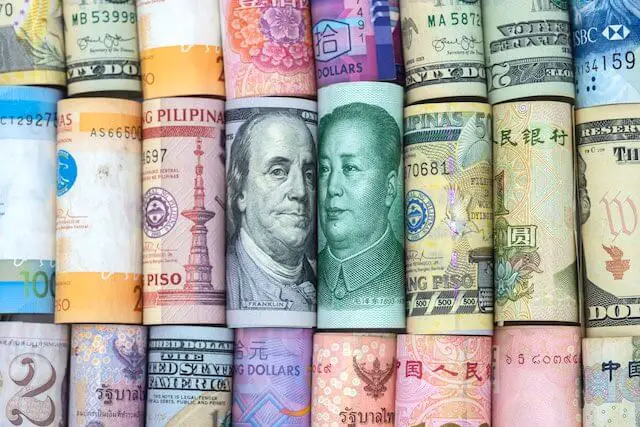A consulting firm is recommending that the Thrift Savings Plan stay the course on its plans to change the underlying stock index for the I Fund despite recent controversy over greater exposure to Chinese companies.
The Federal Retirement Thrift Investment Board (FRTIB), the agency which oversees the TSP, retained Aon Hewitt Investment Consulting (AHIC) to conduct a review of the company’s previous recommendation in November 2017 to shift the I Fund from its current benchmark index, the MSCI EAFE Index, to the MSCI ACWI ex USA IMI Index.
The FRTIB’s decision to make this change has led to controversy with some lawmakers in Congress introducing legislation to block the change and pressuring the FRTIB to not go through with it. They say that it is creating unnecessary risk for federal employees and retirees invested in the TSP by exposing them to investments in Chinese companies and that this exposure also creates national security risks for the United States.
More recently, the Secretary of the Navy, Richard Spencer, weighed in on the debate in an editorial in the Wall Street Journal in which he made some of the same arguments.
“As secretary of the Navy, I have a duty to represent the dedicated members of America’s naval forces and ensure that, as investors, they are not unwittingly helping to underwrite the threats China and Russia pose to their lives. For the good of the country and those who serve it, the FRTIB must reverse its decision to adopt the All Countries World Index—and do it before a single dollar from its fund pays for a weapons system aimed in our direction,” wrote Spencer.
He cited examples of Chinese companies that make weapons that could then pose a potential threat to the United States.
“The FRTIB may argue that its fiduciary responsibility is to generate robust investment returns, with no exception for national security,” wrote Spencer. He added, however, that the lack of oversight of these companies make the Chinese companies “dubious investments.”
AHIC, however, would appear to disagree with Spencer’s position on the potential returns, at least on the change to the underlying benchmark index as a whole.
In its report, it stated that its 2019 third quarter projected results for performance of the new benchmark index were even better than its analysis from two years ago. Specifically, the report said that it projected a 7.9% nominal return versus 7.7% that it had estimated two years ago using the new index. Under the existing I Fund index, its latest projection is a 7.5% nominal return.
| AHIC Q3 2017 | Expected Return | Expected Risk | Sharpe Ratio |
| Developed Markets | 7.3% | 20.0% | 0.23 |
| Emerging Markets (inclusive of China) | 7.7% | 30.0% | 0.17 |
| Total International Equity Market | 7.7% | 21.6% | 0.24 |
| AHIC Q3 2019 | Expected Return | Expected Risk | Sharpe Ratio |
| Developed Markets | 7.5% | 20.0% | 0.26 |
| Emerging Markets (inclusive of China) | 8.1% | 27.5% | 0.21 |
| Total International Equity Market | 7.9% | 20.6% | 0.27 |
“…broadening the coverage of the I Fund to encompass the full opportunity set will provide symmetry to TSP’s equity investment lineup as it would give participants access to both U.S. and non-U.S. large and small cap stocks,” wrote AHIC.
The report also added that the benchmark index change for the I Fund would be in line with what other large defined contribution plans across the United States currently do with respect to having exposure to Chinese companies. Some of the federal contractors it analyzed in its study included Lockheed Martin, Boeing and General Dynamics.
It also analyzed state run defined benefit plans. “20 of the 20 largest public defined benefit plans invest in emerging market equity, which includes China equities,” noted the AHIC report.
“U.S. retirement funds’ capital flows into China equities have grown from an estimated $53 billion to $161 billion over the past ten years, which reflects the rising weight of overall China in the MSCI Emerging Markets Index, the evolution of share classes for China equities within the Emerging Markets Index, as well as investors’ outlook for Emerging Markets Equity,” noted the report.
As of right now, the change to the new benchmark index is set to take effect next year. Whether or not the FRTIB will reverse its decision in light of the pressure it’s getting from lawmakers remains to be seen.



